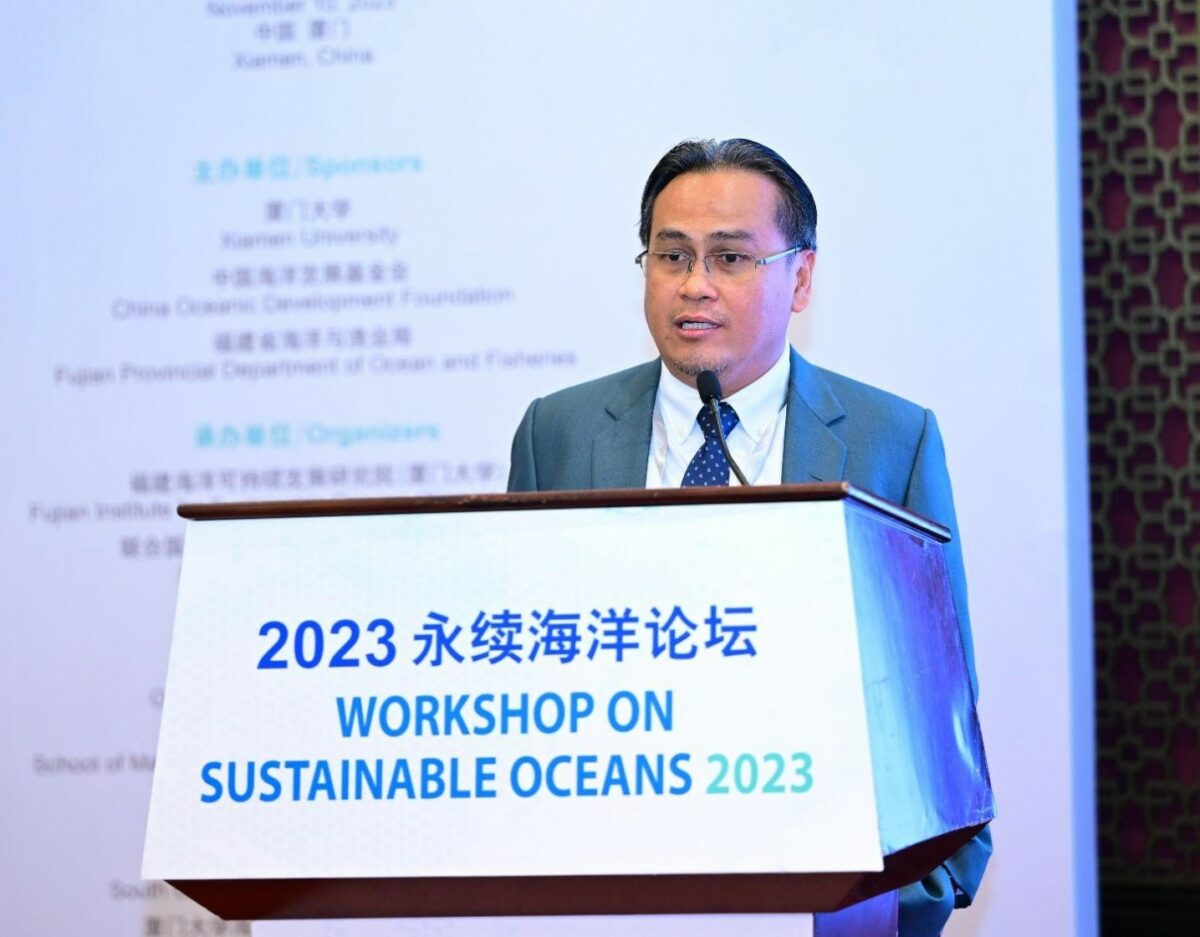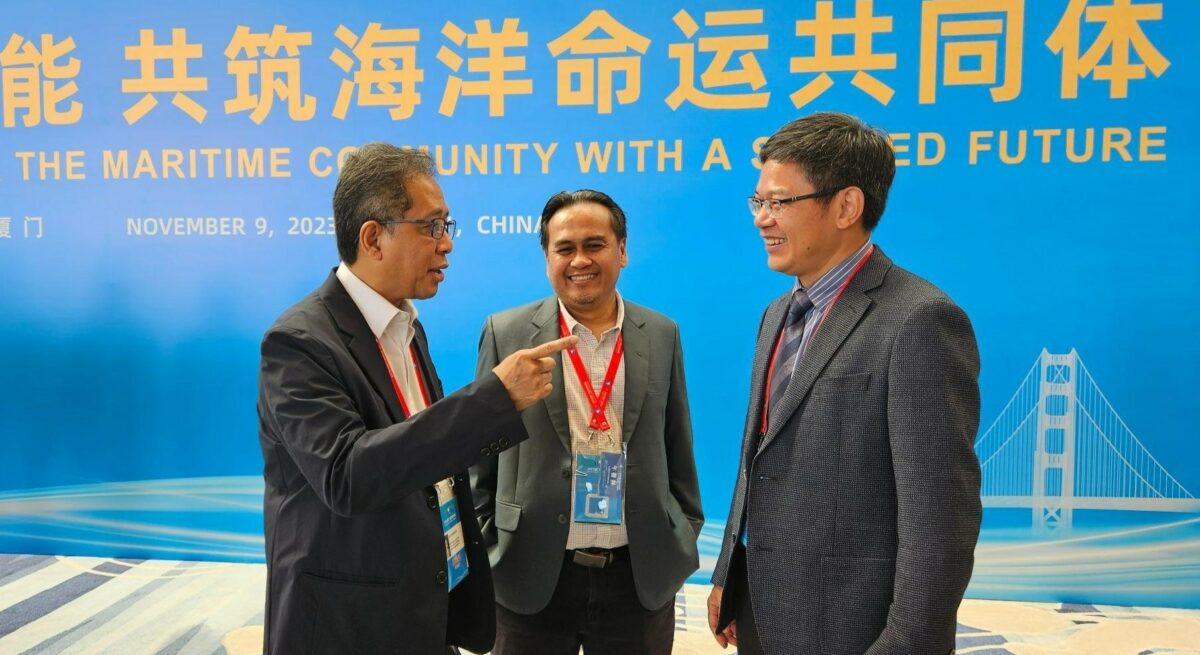Dr Handoko Adi Susanto, Regional Project Manager of the Arafura and Timor Seas Ecosystem Action Phase II (ATSEA-2) Project, was invited by Fujian Institute for Sustainable Oceans (FISO) of Xiamen University to the Workshop on Sustainable Ocean 2023. The Workshop, taking place on 10 November 2023 in Xiamen, addressed urgent coastal concerns and served as a crucial platform for discussions. Dr Susanto was one of key speakers presenting at this workshop, which was a sub-forum of the annual global marine event, World Ocean Week (WOW) 2023. The Workshop on Sustainable Ocean 2023 drew over 200 marine experts from 23 countries, making it a vital hub in the worldwide endeavour to advance sustainable development in coastal regions.

Coastal areas, crucial for ecosystem balance and human activities, are highlighted by the United Nations Sustainable Development Goals. President Xi Jinping actively promotes sustainable coastal practices in China. Introduced in 2013, the Belt and Road Initiative fosters economic cooperation and connectivity among nations for shared development. Safeguarding coastal areas is crucial under this initiative due to threats like rising sea levels, pollution, land use issues, and biodiversity loss, posing risks to their sustainability.
Dr Susanto’s keynote presentation, titled “Towards a Regional Governance Mechanism for the Arafura and Timor Seas (ATS),” delved into the unique challenges faced by coastal regions, with a special emphasis on the ATS region. His insights added a valuable perspective to the collective efforts aimed at achieving the United Nations Sustainable Development Goals (SDGs), particularly SDG 14 and SDG 15.
According to Dr Susanto, “The workshop provided a crucial platform to share insights and strategies for fostering sustainable coastal development. It is heartening to witness the commitment of diverse stakeholders towards a shared vision of safeguarding our coastal ecosystems.”
In his presentation, Dr Susanto emphasised that Australia, Indonesia, Papua New Guinea, and Timor-Leste collaborated in the ATSEA program, focusing on the initial SAP implementation and developing the 2nd SAP. This effort enhanced the well-being of the Arafura and Timor Seas region.
“To ensure the 2nd SAP’s success, the region must establish a Regional Governance Mechanism, including its financing strategy. This will be formalised next year through a ministerial declaration, marking a shift from project-oriented to program-oriented cooperation,” emphasises the need for a structured approach.
“Improving the region creates opportunities for alternative livelihoods and income, especially for coastal communities through the blue economy. This initiative began during ATSEA-2 and will continue through the second SAP implementation (2024-2033),” Dr Susanto added, highlighting the ongoing commitment to enhancing the region’s socio-economic prospects.

Prof Luky Adrianto (IPB University) and Prof Fang Qinhua (Xiamen University)
The collaborative spirit and insightful discussions at the workshop contributed significantly to the ongoing dialogue on sustainable coastal development. As the event concluded, its impact resonates as a testament to the collective dedication to shaping a sustainable and resilient future for our coastal environments.
Finally, Dr Susanto articulated ATSEA’s aspirations, inviting all participants to actively engage in collaborative efforts through various forms of partnerships for the future of the Arafura and Timor Seas (ATS) region. Together, let us build upon the momentum generated at the Workshop on Sustainable Ocean 2023, nurturing partnerships that contribute significantly to the well-being and resilience of our coastal ecosystems. Dr Susanto specifically encourages participants to explore diverse avenues of collaboration that hold the potential to positively impact the ATS region in the times ahead.
By Stella Yovita Arya Puteri


